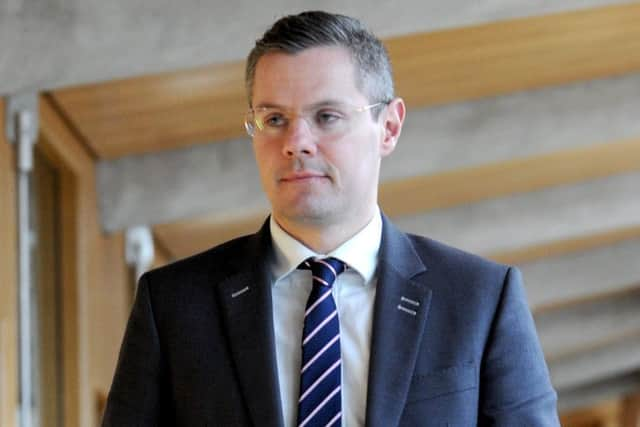SNP set to resist tax hike for highest earners in Scotland
Last night the Scottish Government published a paper exploring the impact of increasing the income tax rate paid by those earning more than £150,000 from 45 per cent to 50 per cent.
The document – published less than 48 hours before the Finance Secretary delivers his budget – was compiled after consultation with the Scottish Government’s Council of Economic Advisers.
Advertisement
Hide AdAdvertisement
Hide AdIncome tax rises are almost certain to be in Mr Mackay’s budget, with the Scottish Government outlining four scenarios that advocate increasing the levy.


Two of the four models suggest increasing the additional rate (AR) for those earning more than £150,000 to 50 per cent. The other two suggest a more modest rise, to 46 per cent and 48 per cent.
At the other end of the scale, three of the four scenarios proposed increasing the tax burden of those earning more than £24,000. The suggestion of a punitive tax hike on the wealthiest has been encouraged by the notion that the SNP’s minority administration would have to rely on the support of the Greens to get the budget through parliament. The Greens have called for the additional rate to be increased to 60 per cent.
But by publishing its paper last night the Scottish Government appeared to signal that Mr Mackay would not go as far as imposing a 50 per cent rate. The move left the door open for a less radical increase to the additional rate. Middle earners are also expected to face a tax rise.
There are about 20,000 people in Scotland earning more than £150,000. That equates to just 1 per cent of adults, but they contribute almost one-fifth (19 per cent) of Scottish income tax liabilities.


The paper warned those on such salaries in financial services and insurance had the means to lower their tax bills by living in England. In the unlikely event that all top earners remained in Scotland, a 50 per cent top rate would add £145 million to Scottish revenue next year.
Even if there was a low level of behaviour change that would be reduced to £53m, while a high level of change could “potentially result in a £24m loss in revenues for the Scottish Government”.
The report said: “Given the findings in the literature, the impact of an increase in the AR to 50p remains uncertain. However, if the behavioural response was around the midpoint of this range, it would suggest that the revenue raised by a 5p increase in the AR would be in the low single millions. There is therefore likely to be a revenue and policy risk associated with increases to the AR that result in a substantial divergence with the equivalent rate in the rest of the UK.”
Advertisement
Hide AdAdvertisement
Hide AdThe report added: “In the short term, the biggest risk to revenues comes from differential income tax policy in Scotland and the rest of the UK since AR taxpayers tend to have more choice regarding their residence and other means of minimising their tax liabilities than lower earners.”
The Scottish Government’s chief economist, Dr Gary Gillespie, indicated that a smaller increase for top earners could be an option.
“Our analysis also notes that a lower increase in the additional rate could mitigate the behavioural response and provide a greater opportunity to raise revenues,” he said.
The document on the potential impact of raising income tax for top earners was published as more evidence of the economic challenges facing Mr Mackay emerged. Analysis by the IPPR think-tank predicted Scotland would face cuts of £1.3 billion a year to non-protected departments by the end of the decade unless taxes were raised.
According to the IPPR, fully protecting non-protected departments such as those outside health and police would require a tax rise of about 4 per cent on the basic rate. IPPR Scotland director Russell Gunson warned tax rises would only buy a couple of years’ protection from cuts.
The Scottish Conservatives will today use a Holyrood debate to call on the government to stick to the SNP manifesto promise to freeze the basic rate of income tax.